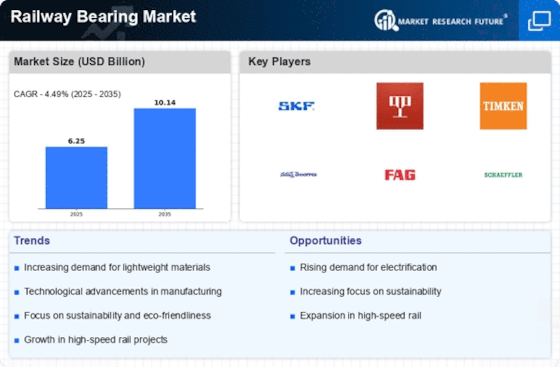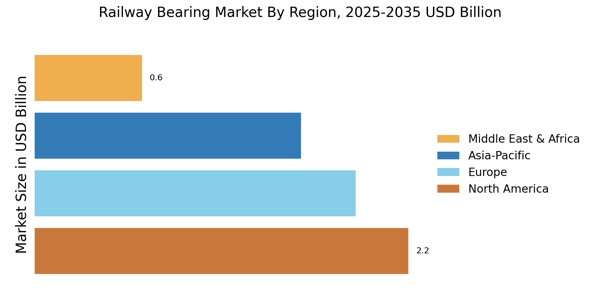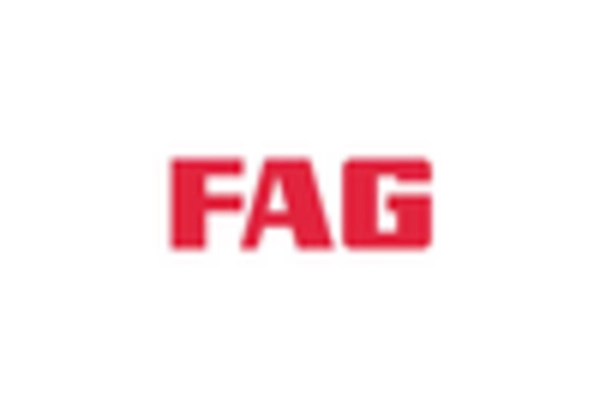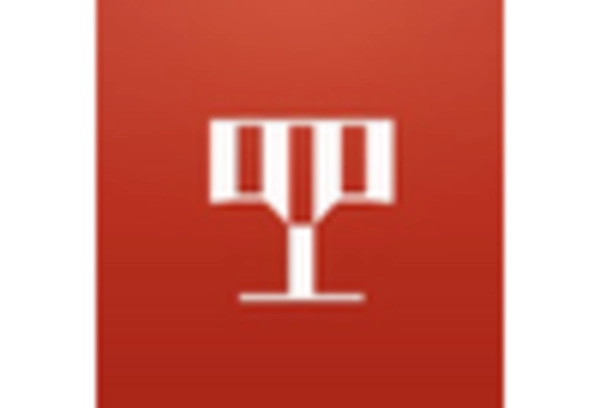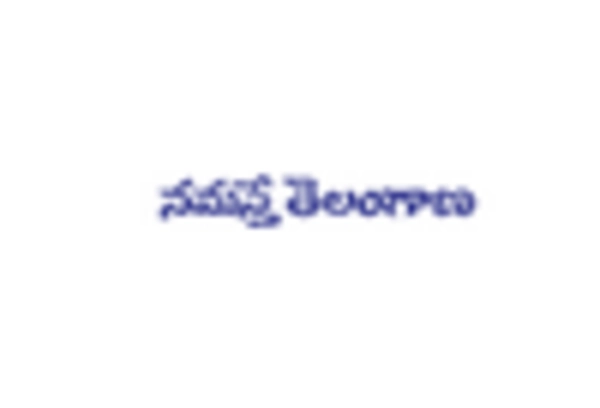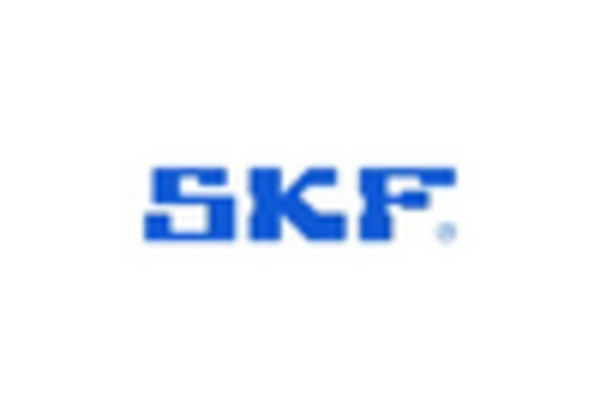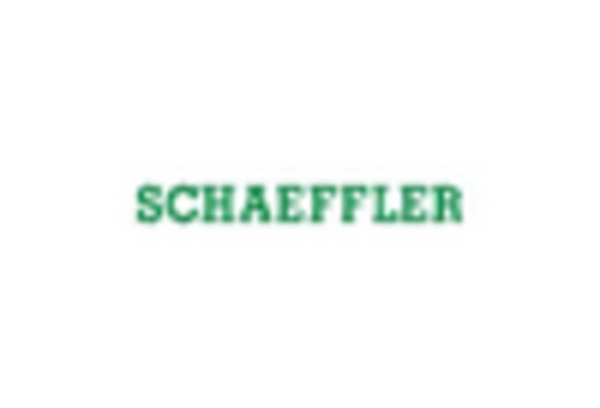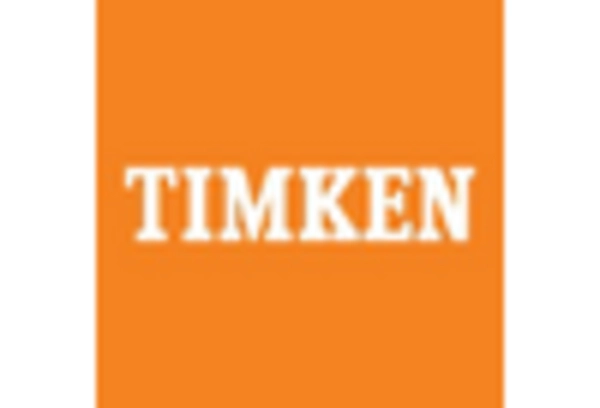Shift Towards Sustainable Practices
The Railway Bearing Market is witnessing a shift towards sustainable practices, driven by increasing environmental awareness and regulatory pressures. Rail operators are actively seeking ways to reduce their carbon footprint, leading to a demand for eco-friendly bearing solutions. Manufacturers are responding by developing bearings that utilize sustainable materials and production processes. This trend is further supported by government initiatives aimed at promoting green technologies within the transportation sector. The market for sustainable railway bearings is projected to grow significantly, as operators prioritize products that align with their sustainability goals. Additionally, the integration of energy-efficient technologies in rail systems enhances the appeal of sustainable bearings, as they contribute to overall operational efficiency. This shift not only benefits the environment but also positions the Railway Bearing Market as a leader in sustainable transportation solutions.
Expansion of High-Speed Rail Networks
The expansion of high-speed rail networks is a key driver for the Railway Bearing Market, as countries invest in modernizing their rail infrastructure. High-speed trains require specialized bearings that can handle the unique stresses associated with high-velocity travel. This demand is expected to grow, with several nations planning to increase their high-speed rail capabilities in the coming years. The market for railway bearings designed for high-speed applications is projected to expand at a robust rate, as manufacturers focus on developing products that ensure safety and performance at elevated speeds. Furthermore, the competitive nature of the high-speed rail sector encourages innovation, prompting companies to enhance their offerings continually. As a result, the Railway Bearing Market is likely to benefit from this trend, with increased opportunities for growth and development.
Regulatory Support for Rail Infrastructure
The Railway Bearing Market benefits from increasing regulatory support aimed at enhancing rail infrastructure. Governments are recognizing the importance of rail transport in reducing congestion and lowering carbon emissions. As a result, various initiatives are being implemented to promote investment in rail networks. For instance, funding programs and incentives for upgrading rail systems are becoming more prevalent. This regulatory environment is likely to stimulate demand for railway bearings, as improved infrastructure requires high-performance components to ensure safety and efficiency. The emphasis on compliance with stringent safety standards also drives manufacturers to innovate and produce bearings that meet or exceed these regulations. This trend not only supports the growth of the Railway Bearing Market but also encourages sustainable practices within the sector.
Technological Innovations in Bearing Design
Technological innovations are reshaping the Railway Bearing Market, as manufacturers invest in research and development to create advanced bearing designs. Innovations such as the use of ceramic materials and enhanced lubrication systems are gaining traction, offering improved performance and longevity. The introduction of predictive maintenance technologies is also transforming how bearings are monitored and maintained, potentially reducing operational costs. According to recent studies, the adoption of these technologies could lead to a 20% reduction in maintenance expenses for rail operators. As the railway sector continues to evolve, the demand for innovative bearing solutions that can withstand extreme conditions and provide reliable performance is expected to rise. This focus on technological advancement positions the Railway Bearing Market for sustained growth in the coming years.
Increasing Demand for Efficient Transportation
The Railway Bearing Market is experiencing a surge in demand due to the increasing need for efficient transportation solutions. As urbanization accelerates, the pressure on rail networks intensifies, leading to a greater emphasis on reliability and performance. The railway sector is projected to grow at a compound annual growth rate of approximately 4.5% over the next five years, driven by the expansion of rail infrastructure and the modernization of existing systems. This growth necessitates the use of high-quality bearings that can withstand the rigors of heavy loads and high speeds. Consequently, manufacturers are focusing on developing advanced bearing technologies that enhance operational efficiency and reduce maintenance costs. The integration of smart technologies into railway systems further amplifies this demand, as operators seek to optimize performance and minimize downtime.


